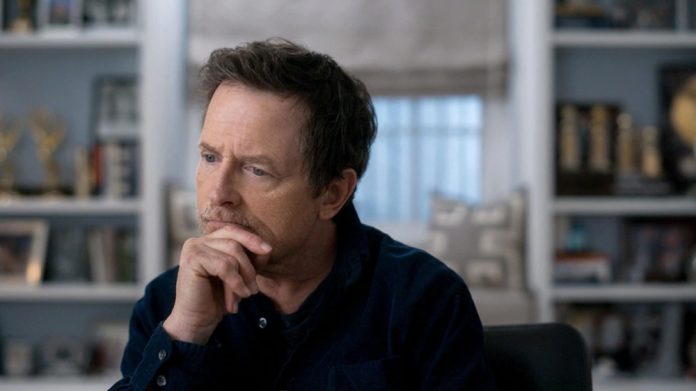When STILL: A Michael J. Fox Movie premiered earlier this year at the 2023 Sundance Film Festival, it was followed by a well-deserved standing ovation. Filmmaker Davis Guggenheim found it “incredible,” telling Above the Line, “I think he inspires people and so I think that’s the exciting thing is to see him get all that love.”
Of all his documentary films, this is the first one to utilize Guggenheim’s background in both nonfiction and scripted. The scripted elements were recreated in Vancouver but those weren’t without its own set of challenges that came as a result of the mask mandate being relaxed.
Thanks to “genius wizard” editor Michael Harte, the film is able to tell Fox’s story using not just the recreations but all this archival footage that they insert into the film from his previous appearances in films and television. Michael J. Fox is still an inspiration all these years after going public with his Parkinson’s diagnosis, and the respect the public has for him is one reason why the documentary has been so well-received on the festival circuit.
Fox broke through as an actor when he was cast as Alex Keaton on Family Ties. After Eric Stoltz failed to be the right fit for Back to the Future, Fox was called in and did double duty, working on the show during the day and the movie at night. The success of both Family Ties and BTTF made him a star overnight. He later returned to TV on Spin City, where he had to hide his diagnosis until he went public with the news in 1998. He soon started the Michael J. Fox Foundation and then became something of a character actor on TV before announcing his retirement in 2020 as Parkinson’s began to take a toll on his speech.
The roots of STILL: A Michael J. Fox Movie date back to long before the pandemic, as Fox had been a fan of Guggenheim’s previous film, It Might Get Loud. So when Guggenheim read Fox’s books and found them pretty funny even though Fox’s situation was “pretty dark,” he called up the actor’s agent to inquire whether Fox had any interest in doing a documentary about his own life, and the rest is history — though it didn’t hurt that Guggenheim’s wife, Elisabeth Shue, co-starred with Fox in the Back to the Future sequels.
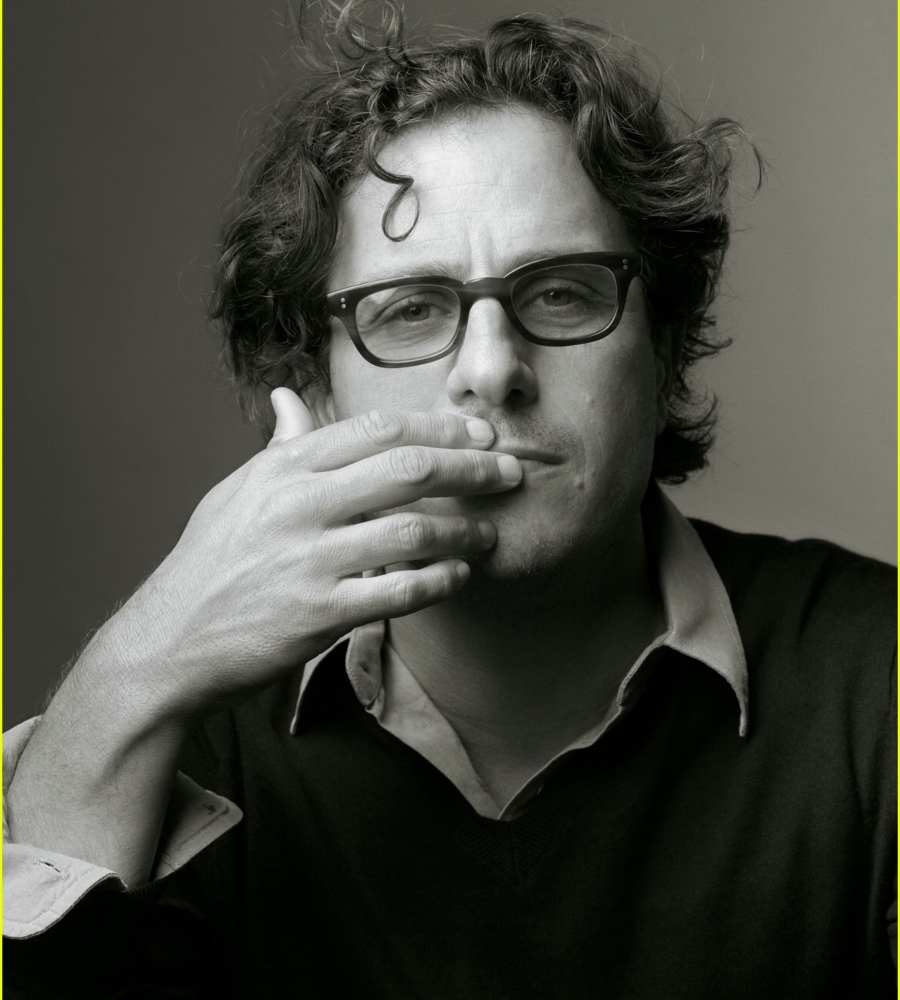
Above the Line: What was the genesis behind STILL: A Michael J. Fox Movie?
Davis Guggenheim: I always come to movies personally — what I want to learn, what I want to know, what am I going to get out of telling the story. It was during Covid. I was feeling kind of sad and depressed and, [like], “poor me.” I started reading his books and his books offered something. He had this great optimism inside the situation, which was pretty dark. I said, “Well, how can he do that?” I found it funny and I found that he had some wisdom to impart. I called up his agent and said, ‘Would he be interested in doing a documentary?’ And he said, ‘Yes.’
ATL: Did it help that your wife, Elisabeth Shue, had a connection to Michael from being in the Back to the Future sequels?
Guggenheim: It didn’t hurt. He had also seen a documentary I had made about the electric guitar called It Might Get Loud, which had Jimmy Page and Jack White in it. Michael’s obsessed with the guitar because of playing “Johnny B. Goode” in Back to the Future. He loved that movie and thought I was the right guy for it.
ATL: I made plans to attend the world premiere at Sundance as soon as the festival announced it. How did it feel when the film received a standing ovation?
Guggenheim: Incredible. I mean, part of it’s for him, right? Or maybe all of it’s for him? People grew up with this guy and he doesn’t look like that young guy [who] can slide off the hood of a car [anymore], but he still has a spirit about him. I think he inspires people and so I think that the exciting thing is to see him get all that love.
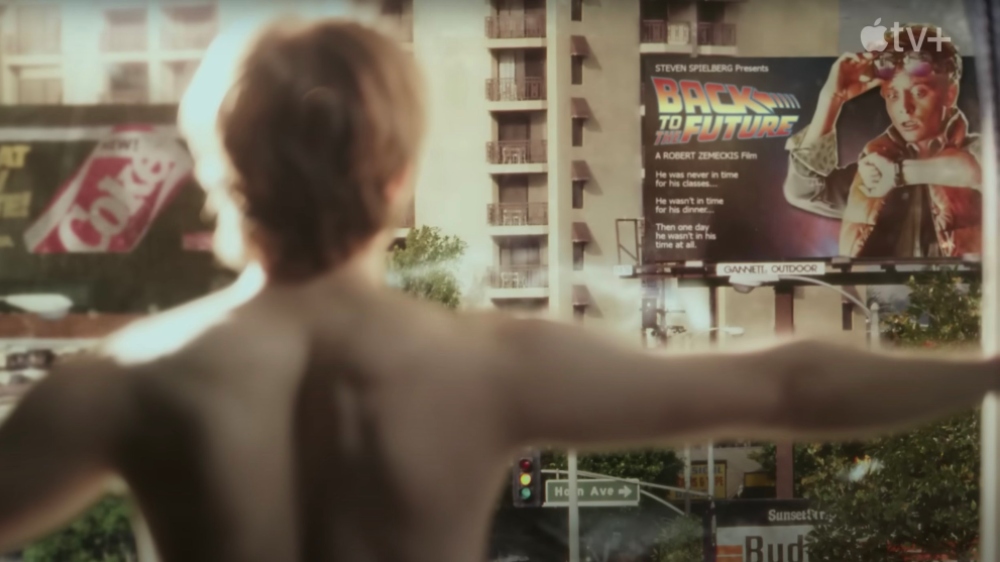
ATL: I thought Michael Harte’s editing was absolutely genius, weaving all of these clips from Michael’s films and TV shows as he’s telling his own story.
Guggenheim: Michael Harte, the editor, is [a] genius. At Sundance, I called him a wizard genius, or genius wizard. He’s an über fan [who’s] seen every movie, and [he] really pushed us to use the footage from his other movies as a way to portray his life in really fun, experimental ways.
ATL: As a viewer, it absolutely worked.
Guggenheim: Oh, thank you. Thank you. Are you an über fan? Are you a big Back to the Future fan?
ATL: Oh, yeah. I grew up on all those Amblin movies. I’m not doing what I do without Jurassic Park. A few years ago, I interviewed Frank Marshall and after we wrapped, I thanked him for my entire childhood.
Guggenheim: Right, right.
ATL: So how many hours of footage did you all weave through in the editing process?
Guggenheim: I don’t think we ever counted it, but a lot. We didn’t shoot a lot on this film, meaning we were very precise about what we were going to do. We started cutting the archival first and with his voiceover, we could just use storyboards for the reenactment. By the time we shot the reenactments, the movie had a beginning, middle, and end, so there weren’t a lot of extra shots that we used.
ATL: How long was the initial cut?
Guggenheim: Not very long. Both Michael Harte and I don’t like long movies. I think it’s 95 [minutes] now, maybe it was 10 minutes longer, so not much. I have friends who make two-hour movies. I’m like, “What are you doing?” You’ve got to have a good reason to make a film over 90 minutes, I think. We’re 95 with credits.
ATL: Yeah. At film festivals, you throw in the intro trailer and all that, and it’s like, “Can I actually make the next film I’m going to on my schedule?!?”
Guggenheim: [laughs] I’m hungry again… and I just ate.
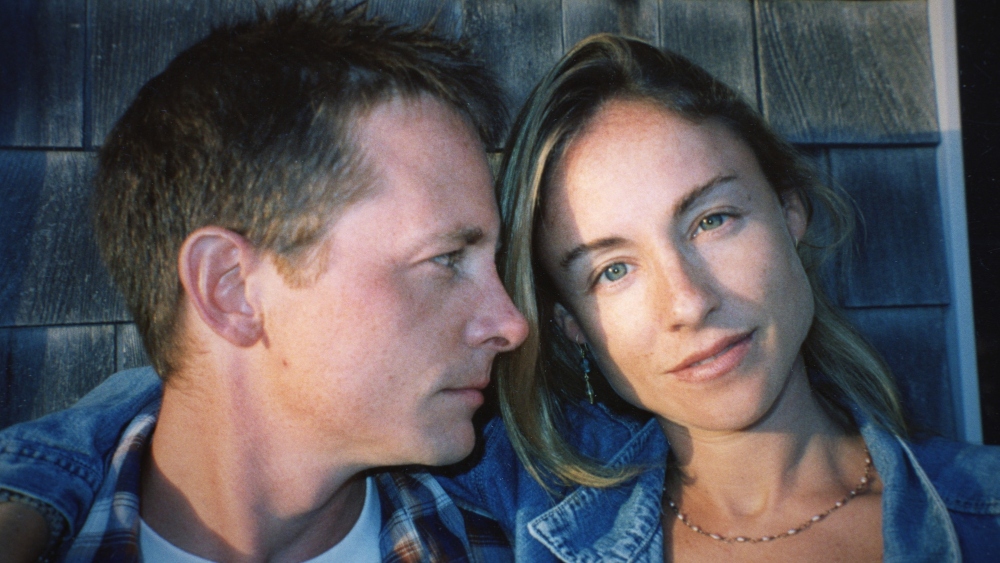
ATL: Was there anything that you tried to keep in the film but you couldn’t really find a place where it worked?
Guggenheim: So many things, so many things. There are always one or two scenes that are your favorite scenes that you don’t put in. There’s an amazing scene of him on a park bench [where] he’s watching people walk and reminiscing about how he used to move well, like, he would love to walk like those people. It’s one of the first things Michael Harte cut and we loved it. We’d show it to people and they were crying just by seeing that one scene. We could never find a home for it in the movie. Tons of scenes. There are tons of scenes from his books that are so great that we didn’t put in.
ATL: I’m working on No Time Like the Future right now.
Guggenheim: Oh, yeah?
ATL: Yeah. I got it a few years ago. These books just keep piling up and piling up, but with the film coming out, I’m like, “I’ve got to read it.”
Guggenheim: Yeah. Listening to the book on tape is fun, too, because he reads them so well.
ATL: I do most of my reading on Shabbos so audiobooks are kind of not an option.
Guggenheim: I hear you, yeah.
ATL: What was the thing that surprised you the most about Michael during the process of making the film?
Guggenheim: Well, I wasn’t sure if he’d still be funny. He’s in his 60s. Parkinson’s is affecting his speech. Sometimes, I couldn’t understand him when his medications hadn’t kicked in yet. But he was really funny in this movie. There’s a lot of laughter and that was very surprising — he’s still got it.
ATL: What was the most challenging aspect of the production?
Guggenheim: Well, the recreations were shot in Vancouver. Vancouver had the best Covid rules ever so Covid didn’t really hit Vancouver very much. When we got there, they relaxed their mask mandates and then everyone started to get it. 30 people in our crew got Covid right when we were shooting. Suddenly, there are no props — the whole prop department was out. We lost actors. We lost cameramen. I got Covid a week before we started shooting. [So] that was very challenging.
Also, I think the feeling of getting it right. I think this is the documentary about Michael J. Fox. I felt like it was a great responsibility to tell his story well.
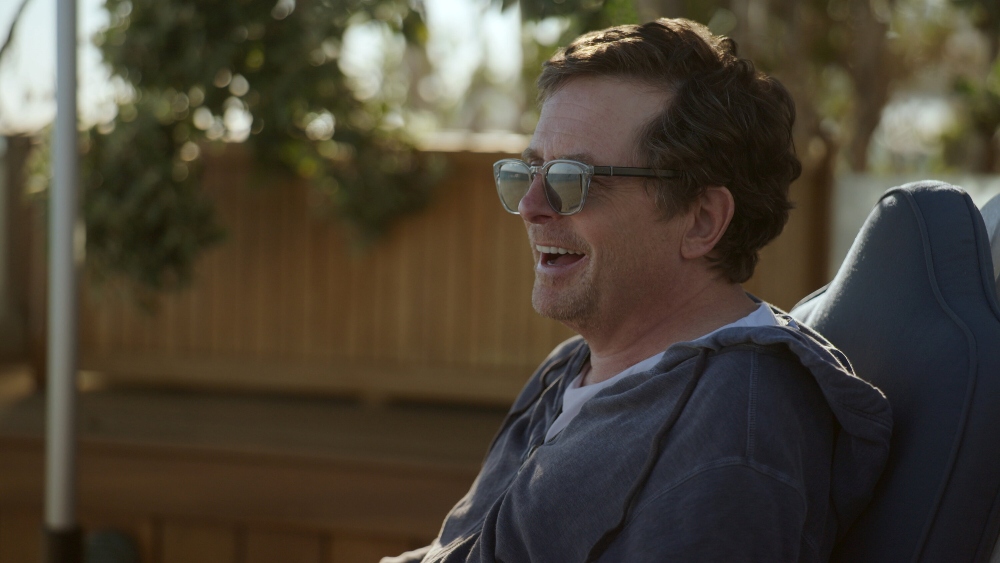
ATL: How long did it take to get the camera setup just right when he’s talking into the camera?
Guggenheim: Yeah, that was interesting. I almost didn’t interview him. My first thought was [that] we didn’t need to because he did the books on tape. I did this commercial a month before I did that. There’s this one shot this DP taught me with the camera, so we can be really close to each other — like this close. It looks like he’s looking at the lens but he’s looking at me and that’s why it looks so intimate. That did take a while, that first time, maybe an hour or so just to get it right. It was so good, he was so funny and his eyes looked so good. He was so compelling that I just did more and more and more of it.
ATL: It’s my understanding that you didn’t write down any questions when you interviewed him.
Guggenheim: Never. I’ve never ever done questions. Sometimes, I’ll write right the night before — things that are interesting to me — just to get my head focused. I always feel like if you’re really listening and you’re really engaged, you’ll end up in the right place.
ATL: You followed in your father’s footsteps in becoming an Oscar-winning filmmaker. How do you manage to stay grounded?
Guggenheim: Well, he won four and he was nominated for 12. I’ve only won one and that’s probably the only one I’m gonna win. I’m probably not gonna win a second so I stay grounded because he’s four times better than me. [laughs] Now, I am joking, but I don’t really focus on awards, to be honest with you. I’ve had enough success that I don’t feel like I need them.
What drives me is getting people to really engage in my stories. If I sit in the theater and they’re engaged, that’s the award or the reward. The other stuff is… it’s kind of random who wins. Sometimes, the right people win and sometimes, they don’t. I see friends of mine spend way too much time worrying about that stuff. It’s like, “I’m too old for this shit.”
ATL: As I was perusing your IMDb page the other day, I couldn’t believe how many TV dramas or comedies and whatnot you’ve directed, because I know you from documentaries.
Guggenheim: When I moved to L.A., I was determined not to make documentaries because that’s what my father did. I was a TV director for a long time. This film actually is the first time that I was able to use my past in scripted because this film has as many scripted elements as non-scripted elements. It really was my two skills coming together — my nonfiction and my scripted skills.
ATL: As a filmmaker, what thoughts do you have about the rise of AI and how the studios are looking to possibly implement it in the future?
Guggenheim: I don’t know if studios really intend to implement it. There’s a big fear about that. Maybe they will. I mean, I guess money always makes people do stupid things — saving money. AI is scary but I don’t feel like I understand it completely yet. It’s something I want to watch closely. I mean, I heard this fake Drake song and I was like, “Oh, that’s pretty close,” [so] it’s scary.
My instinct is that things that are truly authentic will feel even more valuable. It’ll be very important for filmmakers to prove that they’re authentic. If I’m a student writing a term paper and all my classmates write an AI paper, but I write a real paper, how do I prove to my teacher that my stuff is authentic and real? I think that’s going to be true for a lot of things — for movies as well.
ATL: What do you hope people take away from watching this documentary?
Guggenheim: I just want them to feel what I feel. I loved [these] three years with Michael J. Fox. It’s a privilege to do a deep dive into his life — an incredible story of a short guy from Canada becoming the most famous person in the world and then, at the height of his career, he gets this diagnosis, and what does he do about it? It’s an incredible story. How he handled it is very moving to me. It actually affected my own personal life. I hope when people watch the movie, they feel the same way.
STILL: A Michael J. Fox Movie is now streaming on Apple TV+.


